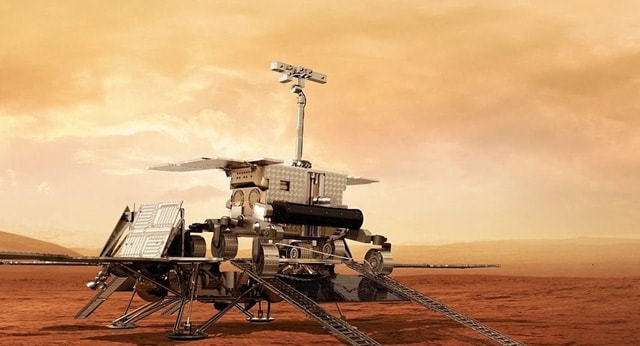Scientists are looking to grow crops on Mars
As humans prepare to land on Mars and eventually colonize it, the next question will be what humans will eat there. According to science magazine Universe, creating a sustainable food supply is a huge challenge, with the cost of sending resources from Earth being exorbitant.
This means that Mars colonists will need self-sufficient and highly sustainable agriculture, a prospect that seems a little more realistic now with the recent discovery of liquid water on the planet.

However, there are many things that people need to be able to grow enough food on Mars.
Greenhouse
One option is to use hydroponic greenhouses and controlled environment systems, similar to what is currently being tested on the International Space Station (ISS), to grow plants.
Another way to proceed is to use advanced synthetic biology, which combines principles from engineering, DNA science, and computer science to improve the performance of plant life on Mars.
People learn to read DNA and they can also bioengineer and even create entire organisms.
The entire genome of this industrial yeast, bacteria, is now being re-engineered and can now be incorporated into automated robotic facilities that simultaneously test millions of DNA combinations to find organisms with the qualities people are looking for.
Unlike Earth's soil, which is moist and rich in nutrients and microorganisms that support plant growth, Mars is covered with regolith - a dry material containing the chemical perchlorate that is toxic to humans.
Besides, water on Mars exists mainly in the form of ice; and plants, which have evolved on Earth for hundreds of millions of years, adapted to terrestrial conditions, will not grow well on Mars.
This means that efficient farming on Mars will require significant amounts of scarce resources such as water and energy.
Recently, the European Mars Express spacecraft explored the southern hemisphere of the Red Planet and found a large lake measuring more than 19 km wide located under the planet's southern ice cap.
This is the first time a large, stable lake of liquid water has been confirmed to exist on Mars, and the discovery could have major implications for the chances of survival on the Red Planet.
Adapting plants to the Martian environment
However, using synthetic biology to develop precision farming on Mars may be a more viable option because it would accelerate engineering and testing biological designs under simulated Martian conditions.
With adequate funding and active international collaboration, advanced Martian “biology” could improve many of the traits needed to make crops thrive on Mars within a decade, Universe says.


